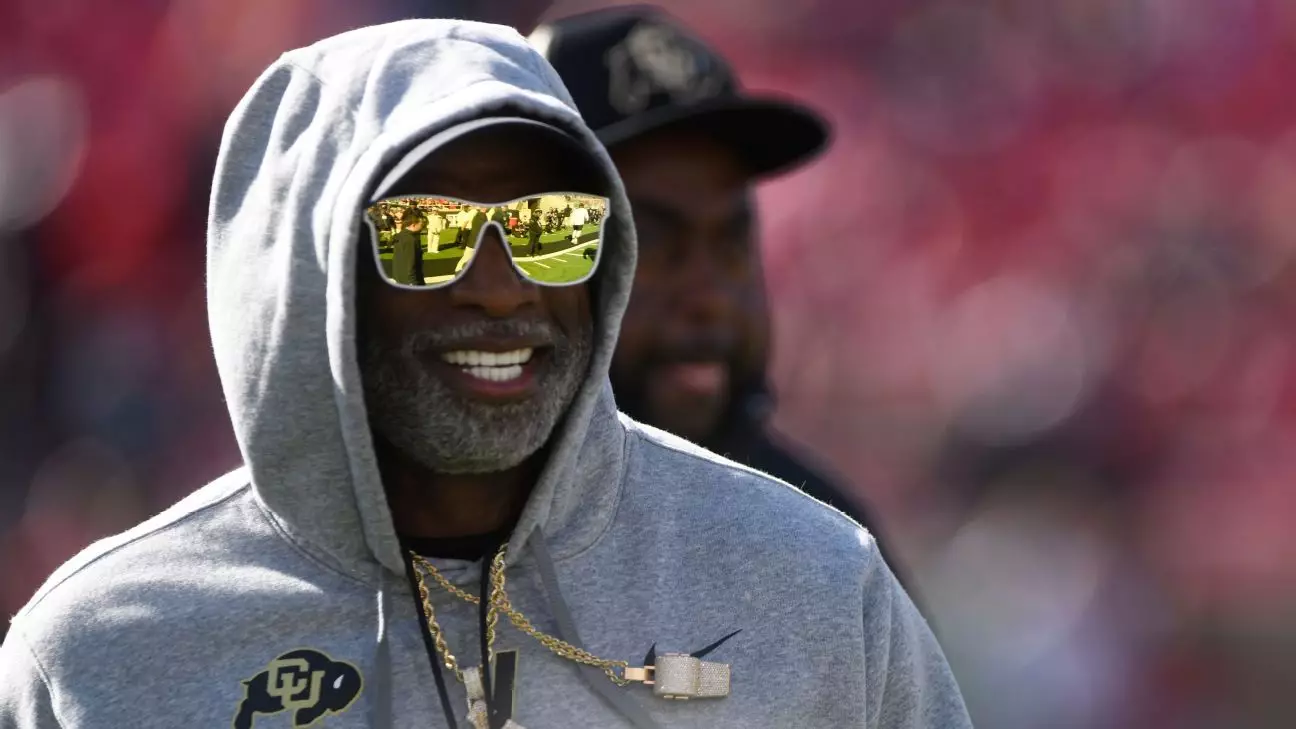In a bold move that echoes through the halls of college athletics, Deion Sanders, the sensational head coach of the Colorado Buffaloes, has secured a staggering five-year, $54 million contract extension. This lucrative deal, which stretches to the 2029 season, positions Sanders among the top tier of coaches nationwide. His base salary will escalate to an astonishing $10 million by 2025, a figure that will crown him as the highest-paid football coach in the Big 12 and one of the top ten in the country.
However, let’s not merely focus on the numbers. While some might argue that the price tag reflects the escalating commercialization of college sports, I contend that Sanders’ unique charisma and innovative approach to coaching warrant such an investment. This isn’t merely about a coach’s salary; it’s a statement about the transformation he represents for a program that was languishing at a 1-11 record just a year prior. The investment is not just in Sanders, but in the future he envisions for both the Buffaloes and the broader college football landscape.
The Weight of Expectations
With a dynamic contract comes equally weighty expectations. Under this new agreement, Sanders’ buyout clauses reflect the urgency and strategic risk inherent in college football today. Should he opt to leave the Buffaloes before 2025, his buyout begins at $12 million, tapering down to $3 million in 2029. While this could be seen as an escape hatch, it also underscores the immense pressure on Sanders to deliver. He is not just tasked with winning games but must also nurture the growth of young athletes in an environment saturated with distractions and the lure of professional football.
His statement about building something revolutionary isn’t simply PR fluff; it’s a clarion call to anyone who dares to dream bigger in the world of college sports. As college programs increasingly resemble their professional counterparts, the onus is on coaches like Sanders to ensure that their students are not only equipped for physical challenges but are also developing into well-rounded individuals prepared for life beyond football.
The Cultural Impact Beyond the Field
What truly sets Sanders apart is his profound effect on the community and the university itself. The immediate statistical impact is staggering: applications to the University of Colorado surged by 20% within a year, including an extraordinary 50.5% increase from prospective Black/African American students. This surge in diversity reflects more than numbers; it symbolizes hope and a change in narrative.
Moreover, Sanders has galvanized local enthusiasm, leading to sold-out home games and a significant economic boost for Boulder. The reported direct economic impact of $93.9 million speaks volumes about the symbiotic relationship between a university’s sports program and its local community. Ultimately, Sanders is not just cultivating football players; he’s encouraging a vibrant, diverse, and robust community that stands united behind a common identity.
A Revolutionary Perspective
Rick George, Colorado’s athletic director, implied that Sanders is revolutionizing college football, an assertion that can’t be dismissed lightly. College athletics are often caught between their educational mission and the commercial interests that increasingly dictate their decisions. In Sanders, Colorado has found a figure who straddles both worlds—a charismatic leader who inspires on-field excellence while emphasizing character development.
As Sanders aptly puts it, this project extends well beyond the football field; it’s about molding young men ready to confront the complexities of the modern world. In a climate where many athletes are treated as commodities, Sanders’ approach is decidedly refreshing. His appeal lies in his commitment not merely to victories but to the holistic growth of his players.
This framework invites us all to reconsider how we perceive success in college athletics. Can we balance winning with meaningful development? Through Sanders, Colorado is presenting a compelling case that we can—and should. The essence of college sports should not only encompass wins and losses but also the experience of growth, education, and character-building for young men and women navigating a challenging world.


Leave a Reply